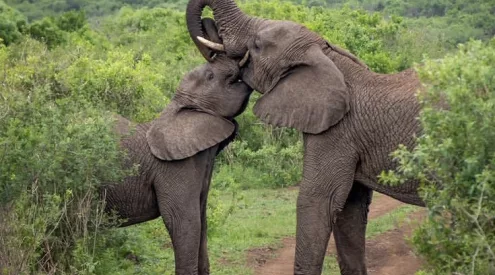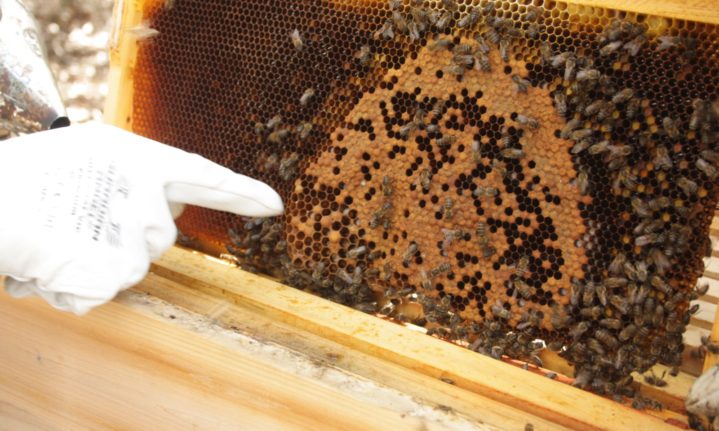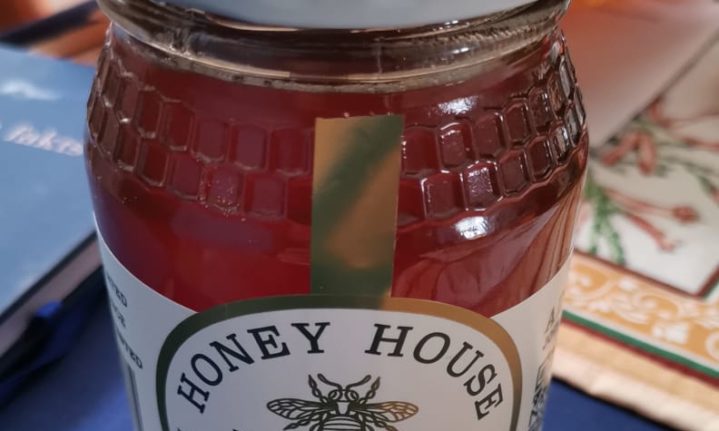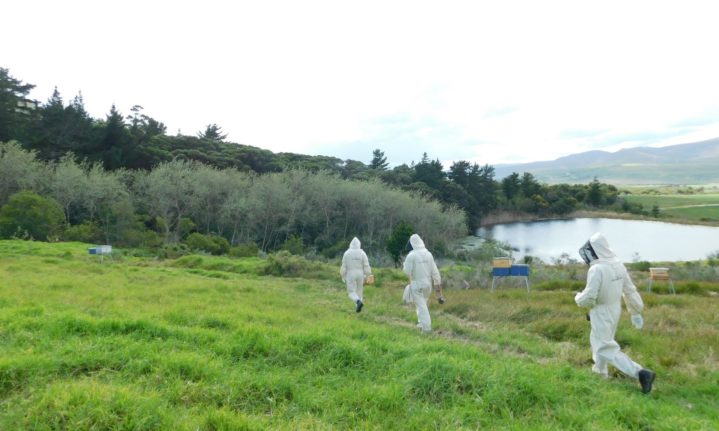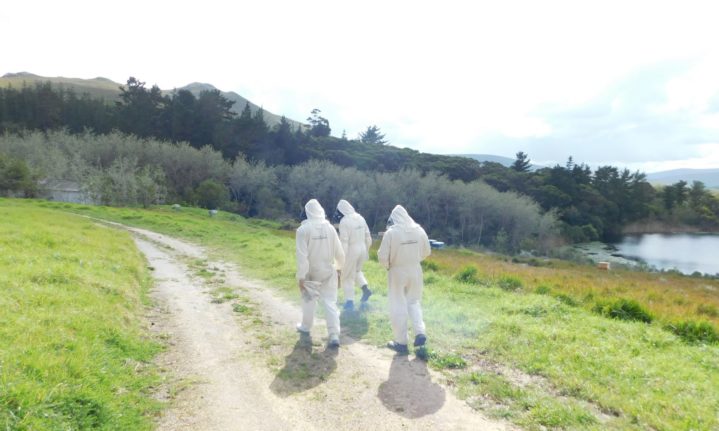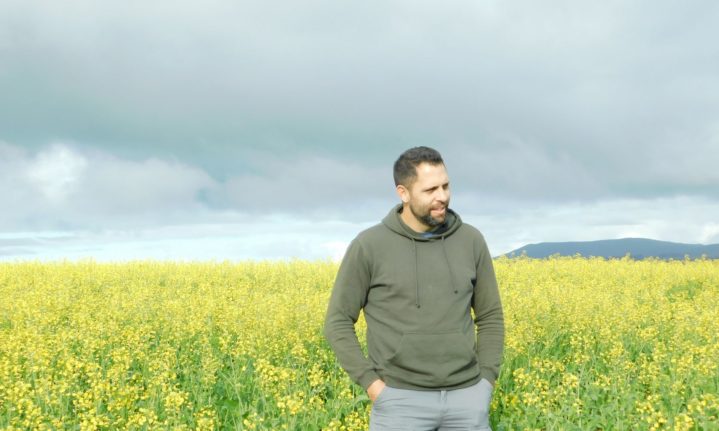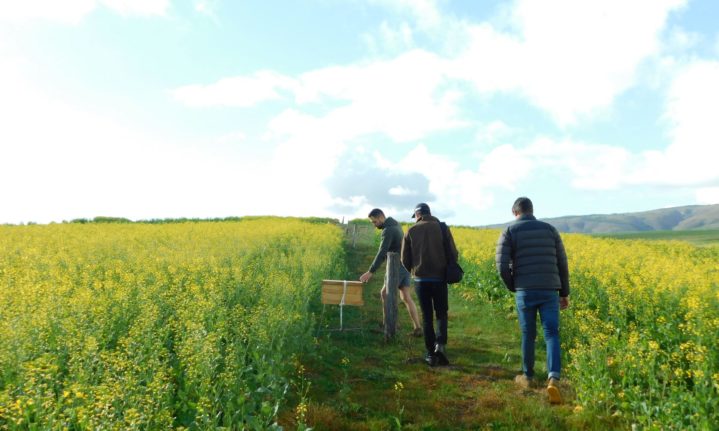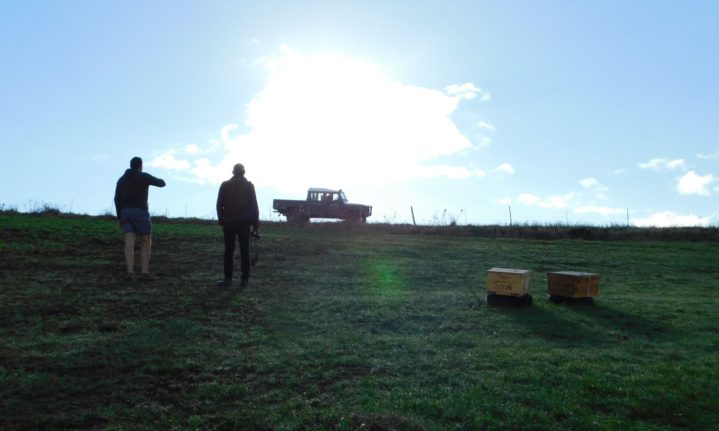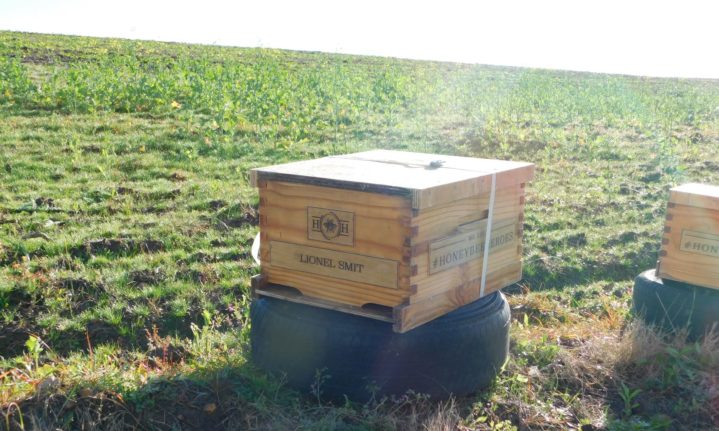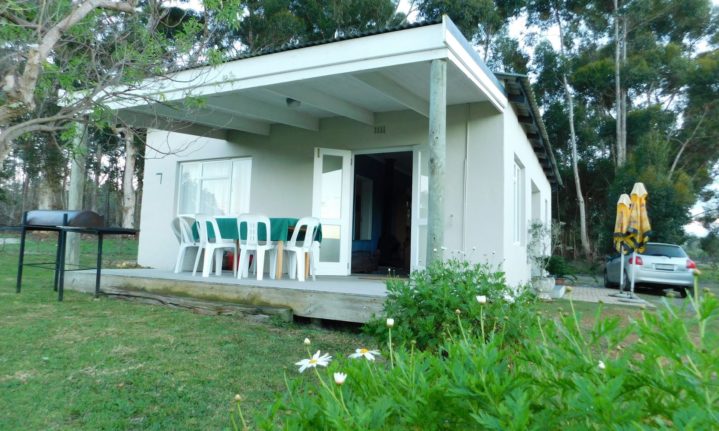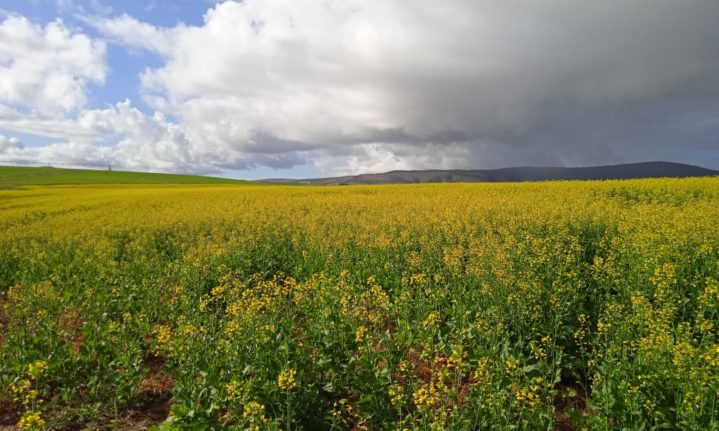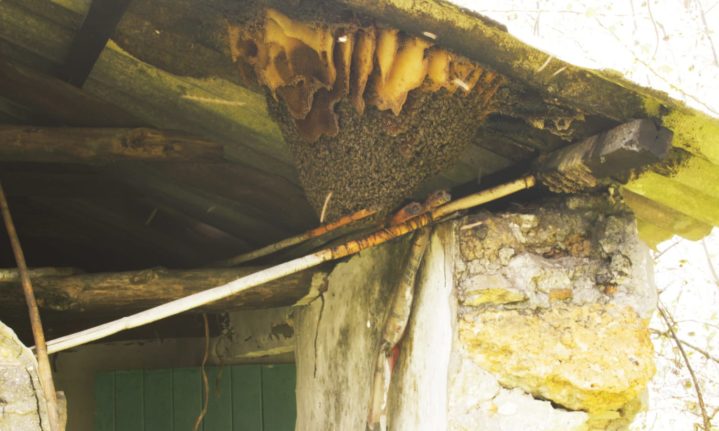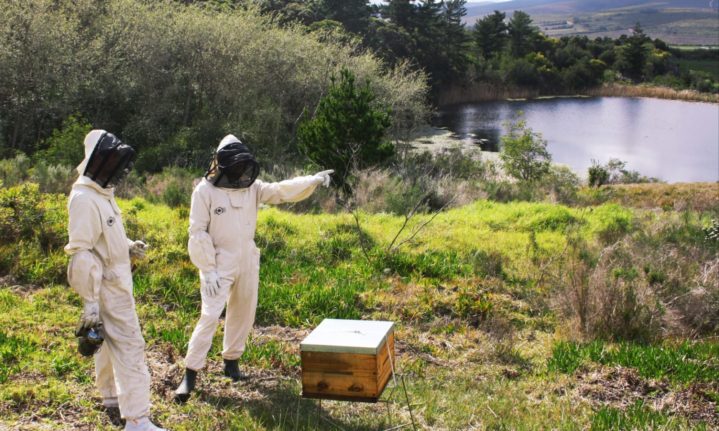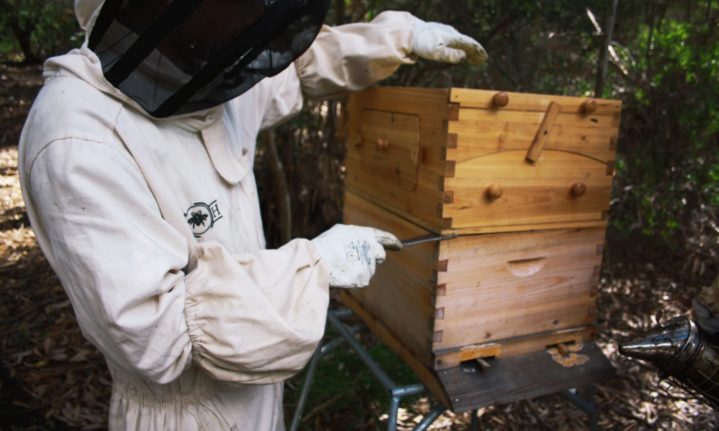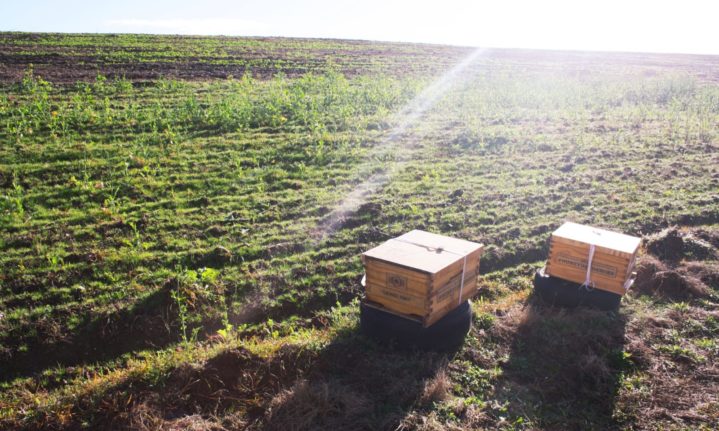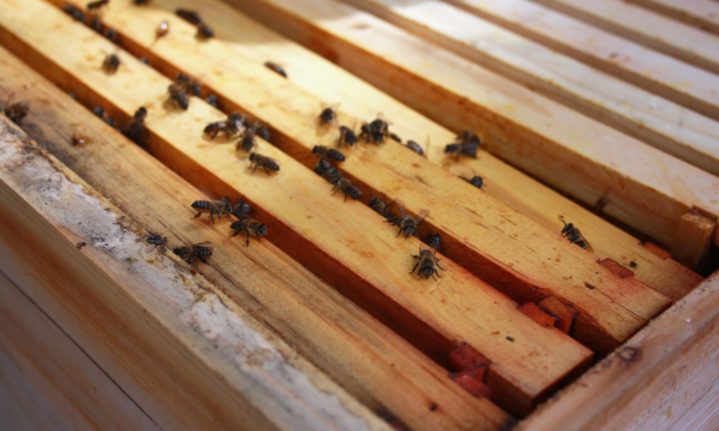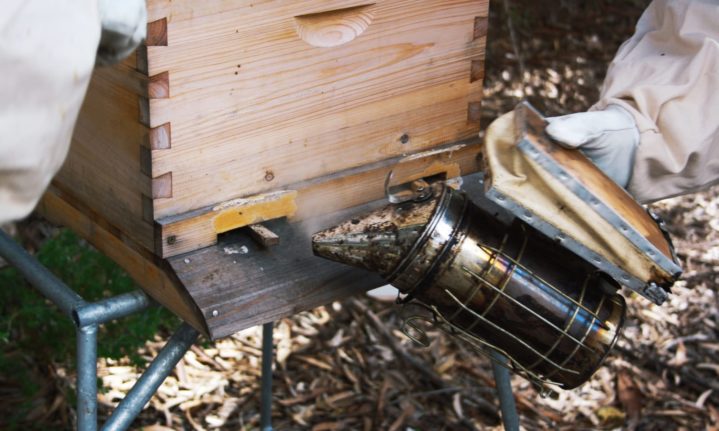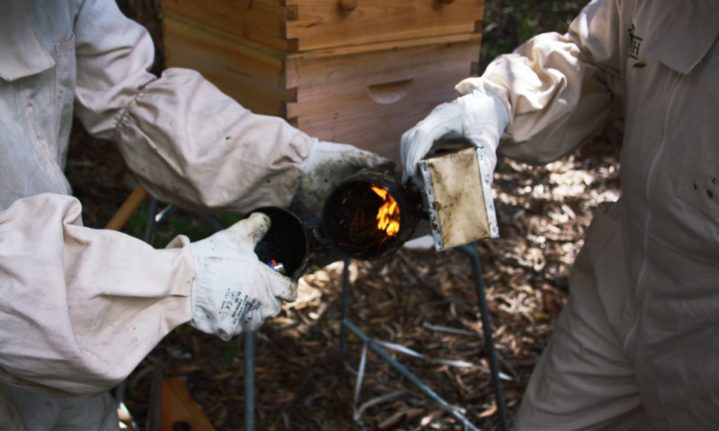If any species has entered the limelight for all the right and wrong reasons, it’s probably the bee. It’s getting recognition for the underappreciated task of pollination while also being at greater and greater risk of disappearing.
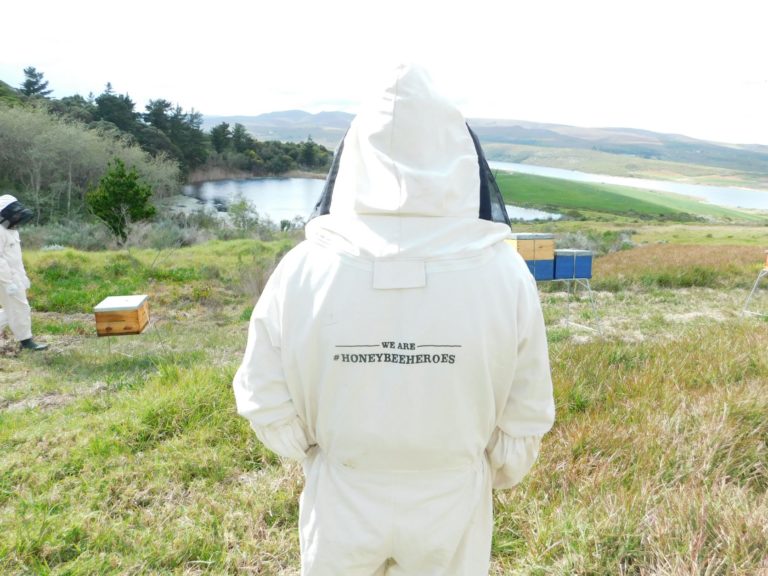
It is this unfortunate conjuncture that drove Chris Oosthuizen to establish Honeybee Heroes on a farm outside Stanford in the Overberg, where world-class honey is produced while ensuring that bees remain the star of the story.
Honeybee Heroes
Tucked away on a gravel road outside of Stanford, you wouldn’t assume that a sleepy farming community would be at the forefront of a transformative initiative.
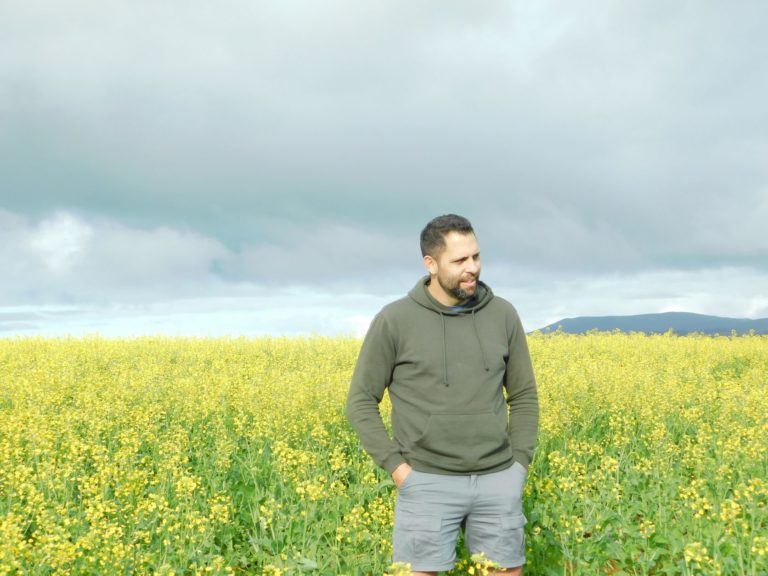
Chris, in the middle of the Canola fields where they’ve set up hives to attract swarms to establish a colony.
But a certain Willowdale farm is all the buzz with a new project to save the honeybees. Introducing the ‘bees-knees,’ Chris, the driving force behind this initiative.
Chris began the honeybee sanctuary in early 2020 on a working sheep farm. Since then, he has placed hundreds of hives on the land and on nearby farms, as a way to help reverse the decline of South Africa’s honeybee numbers.
Chris, along with Karim Kamwendo, an expert apiarist on the farm, aims to transform beekeeping into an industry where communities see it as a viable option to build a career and learn how to better share the land with the natural environment.
The plight of the bees
Honeybees form an integral part of food production worldwide, pollinating most of the fruits and vegetables of the world. But due to the intensity of commercial farming and beekeeping malpractice, habitat loss and climate change, honeybees are at risk globally.
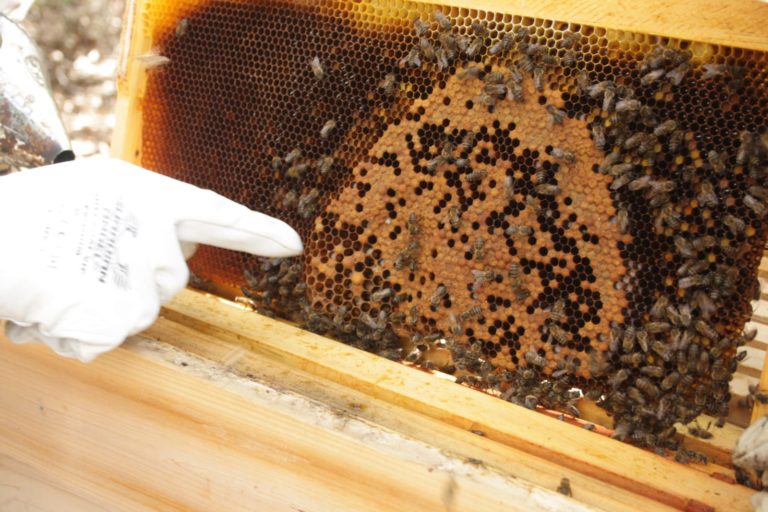
South Africa’s honeybee species, Apis mellifera capensis, or ‘Capensis’, often called the Cape honeybee, is a particularly vulnerable species. By placing many hives in the region, this initiative hopes to provide more safe, permanent homes for Capensis bees, so that the population can thrive. This venture has turned into a community-driven initiative, where other local businesses, such as Stonehouse Cheese Estate and Lomond Wine Estate, have already jumped aboard by placing Honeybee Heroes hives on their land. These “micro-apiaries” will be run by their own staff members who have been trained by Honeybee Heroes staff on sustainable beekeeping practices.
Chris says, ‘We believe these initial partnerships will serve as a paradigm for how community-run micro-apiaries could work across the country. Our mission at Honeybee Heroes is threefold: to protect the Capensis bee, to uplift low-income South Africans through beekeeping, and to educate consumers on mindful consumerism. This partnership enables us to do all three.’
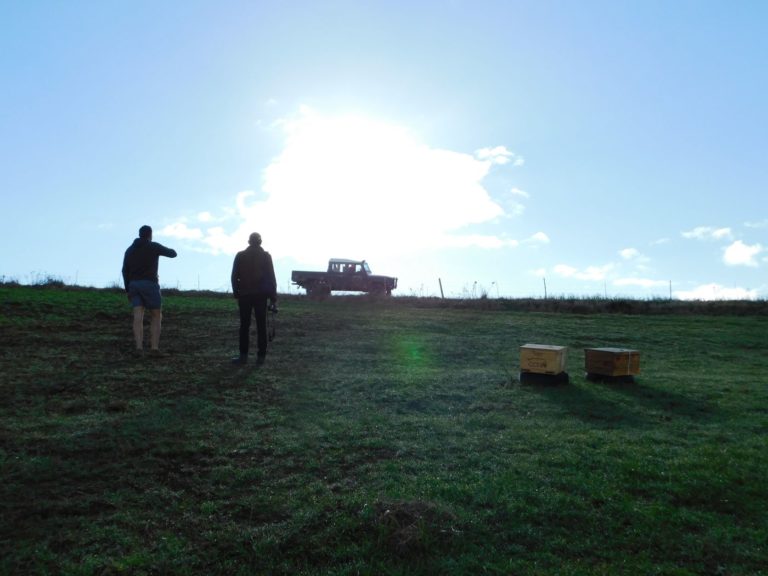
‘We see incredible potential in this concept, and can’t imagine a better group to serve as our first apiary hosts than our Stanford neighbours,’ Chris says. ‘In our experience, grassroots conservation is the most effective—and most rewarding—way to make a real impact.’
The Magic of Honey
Although the Cape honeybee is classified as non-threatened on the IUCN red-list of threatened species, due to widespread monocropping, human development, and removal of alien plants like eucalyptus, the Cape honeybee’s future doesn’t look bright.
Thankfully, the farm is the perfect bee’s buffet. Besides the local canola, lavender, and eucalyptus trees, the region’s native fynbos is a particularly ideal honeybee environment, with its year-round flowering, so that the bees constantly have a source of food. On Willowdale Farm, the land isn’t hoed but left to flourish naturally, to ensure enough foraging resources for the farm’s growing bee population. By doing so, they are demonstrating that the land is valuable just as it is!
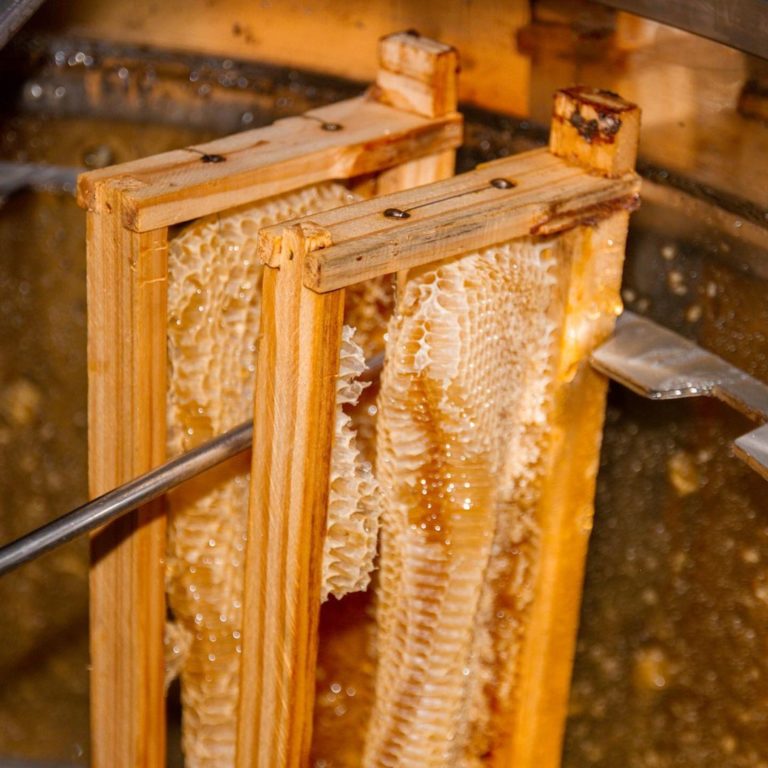
And the result of this diverse foraging is really something sweet: honey of varying flavour profiles. Raw honey is complex, naturally varying in colour, taste and texture, which makes natural honey similar to an experience of wine tasting. Fynbos for example is rich in flavour, and you can see it with its darker colour when placed alongside eucalyptus honey.
A purveyor of fine wine knows all about how the production process affects the flavour; the grapes, the climate, the storage, the year.
The same applies to honey, and the source of pollen affects the taste, texture, colour and even health benefits. Chris speaks about the most sought after honey in the world, manuka honey, renowned for its earthier and richer taste.
But wouldn’t honey sourced from the most biodiverse and unique flora environment on the planet create a unique and sought after honey? Chris says so, believing that fynbos honey should be right up there with manuka honey.
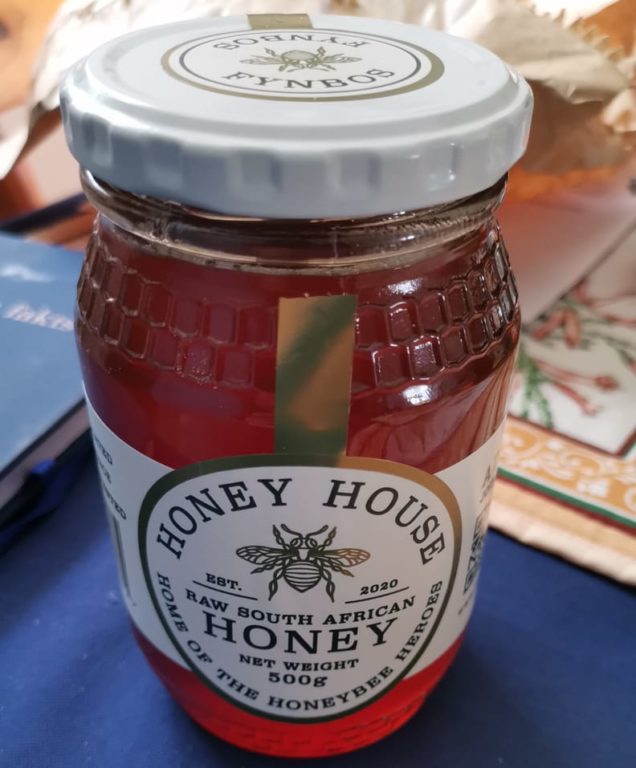
Unfortunately, the honey industry in South Africa isn’t a profitable one at the moment, because of cheap honey imports that are driving down the price of honey, so that local producers can’t compete. Instead, many South African beekeepers make their income from commercial agriculture, where beekeepers truck their hives across great distances so farmers can pollinate their crops, which can be dangerous for the bees. (Thankfully, Honeybee Heroes hives are not used for commercial pollination, so that they don’t disturb the bees’ natural processes or put them at risk.)
The goal of Honeybee Heroes is to make honeymaking a more profitable business for South Africans by encouraging consumers to buy real, local honey, rather than cheap imports that typically include many additives like artificial sweeteners and corn syrup. This in turn makes the honeymaking business more viable for young and low-income South Africans, and encourages a healthier lifestyle for the bees.
‘The more value in honey, the more value in bees,’ is how Chris simply told me.
Creating a world with bees
Why does a jar of honey become so latent with transformative potential then? Honeybee Heroes removes the veil in the production process, inviting you into the hive and the world of bees.

Honey is proving to be a catalyst for changing our relationship with the web of life, and Honeybee Heroes transparency makes sure that bees remain the star of the show when it comes to honey, and for good reason. Bees are more than honey producers, but play a critical role in ecosystems.
An ideal world for Honeybee Heroes includes hives in every community, making the most of public spaces or urban green belts, where a personal custodianship can go a long way. This is part of the motivation behind the free beekeeping courses they offer for anyone wanting to learn, as Chris says;
‘We know that bringing conservation into your everyday lives can be difficult, especially if you’re working in the city and busy with family, full-time jobs, and social commitments. But these courses are intended to help you recognise the small, ordinary things that we all can do—even in the grocery store—to play an active role in caring for this beautiful country we call home and the vulnerable species we share it with.’
After a day with Chris, you will come to realise the profound potential of this project and get to see the spectre of a world where we live symbiotically with nature.
Honeybee Heroes is also offering local beekeepers in Stanford and beyond free beekeeper training and extraction facility use, hoping to give power back to producers, so that it’s seen as a viable option for communities, especially the younger generation.
Honeybee Heroes is showing promising signs of becoming a solidarity cooperative for the community to actively take part in saving our bees, and this is how you can:
Adopt a hive
Ever wanted to own a beehive? Well, now you can. It’s fairly simple actually, thanks to Honeybee heroes.
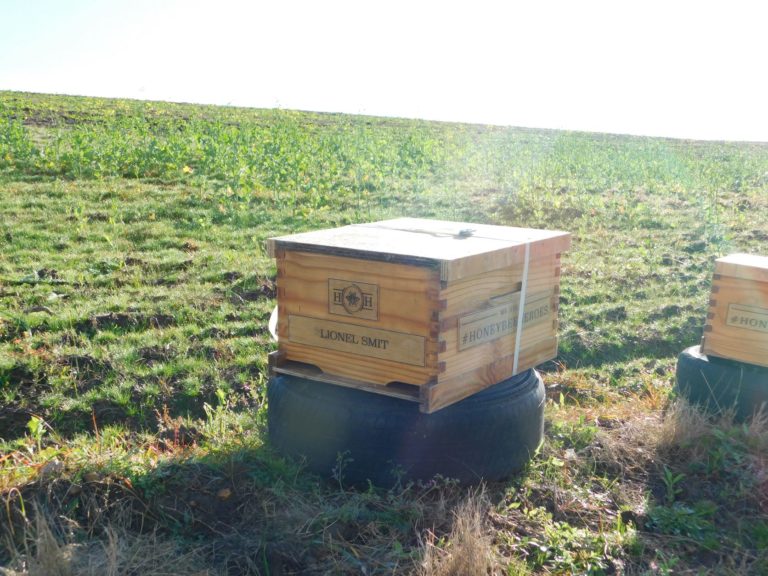
One of the branded, personalised hives donated to Honeybee Heroes.
Honeybee Heroes are largely supported by their sponsors, you. Through their adopt a hive initiative, you get a personalised hive with your name, 3 kg of honey (6 jars), an adoption certificate and regular updates on your hive.
You are also welcome to visit the farm and the Honeybee Heroes will welcome you along to check on your hive.
If you would like to adopt a hive, then click here.
Take a beekeeping course

Honeybee Heroes offer regular and free beekeeping courses. The team would really like to educate as many people as they can, and you are invited to participate in the processes that go into making a jar of honey.
What better way is there to get a better appreciation of bees? If you would like to become a hobbyist beekeeper, or are just interested in bees, these courses are a must.
If you are interested in taking a beekeeping course, more information can be found here. There are also cosy chalets available on the farm to stay over.
Pictures: David Henning and Matthew Patterson





